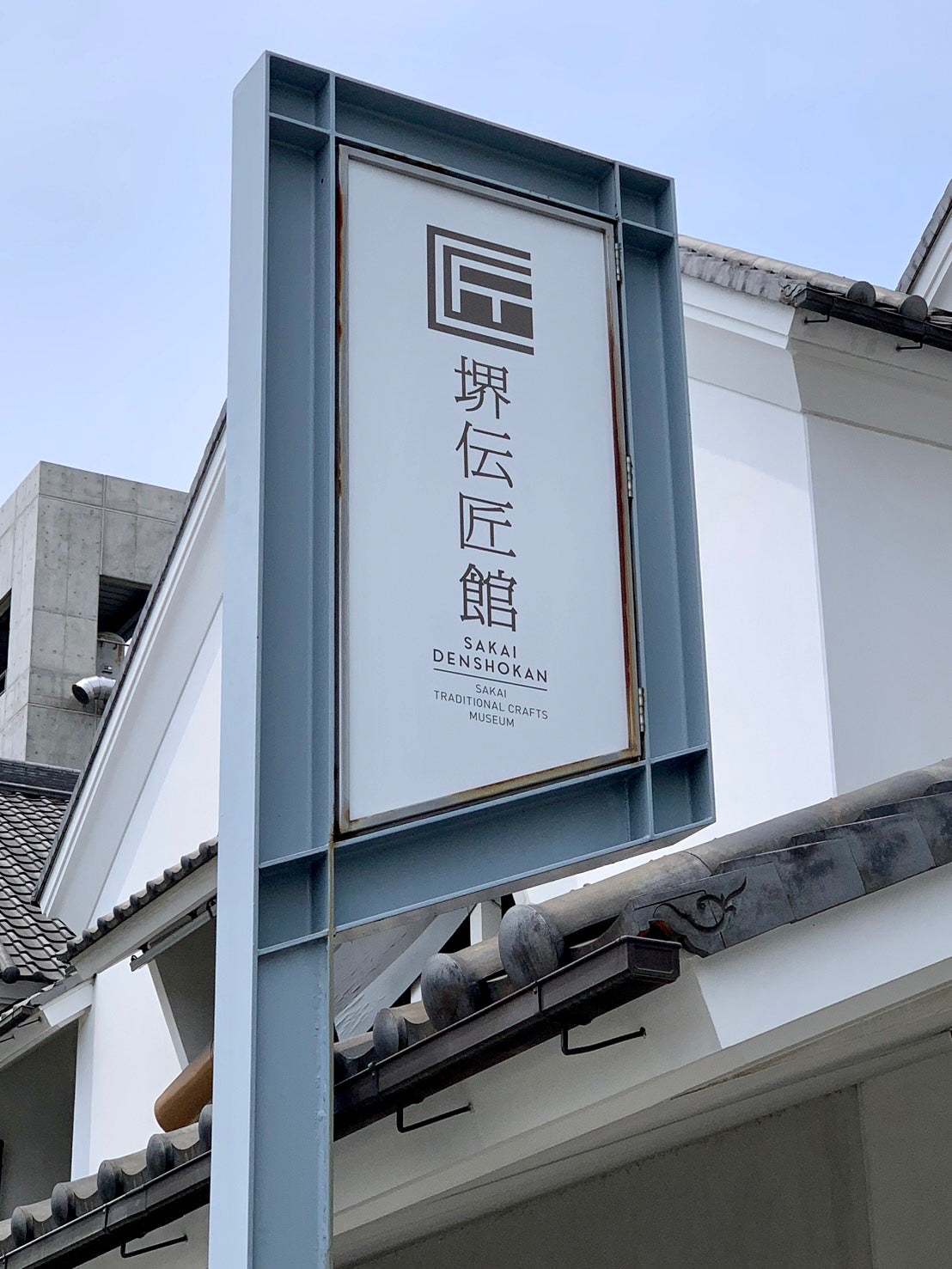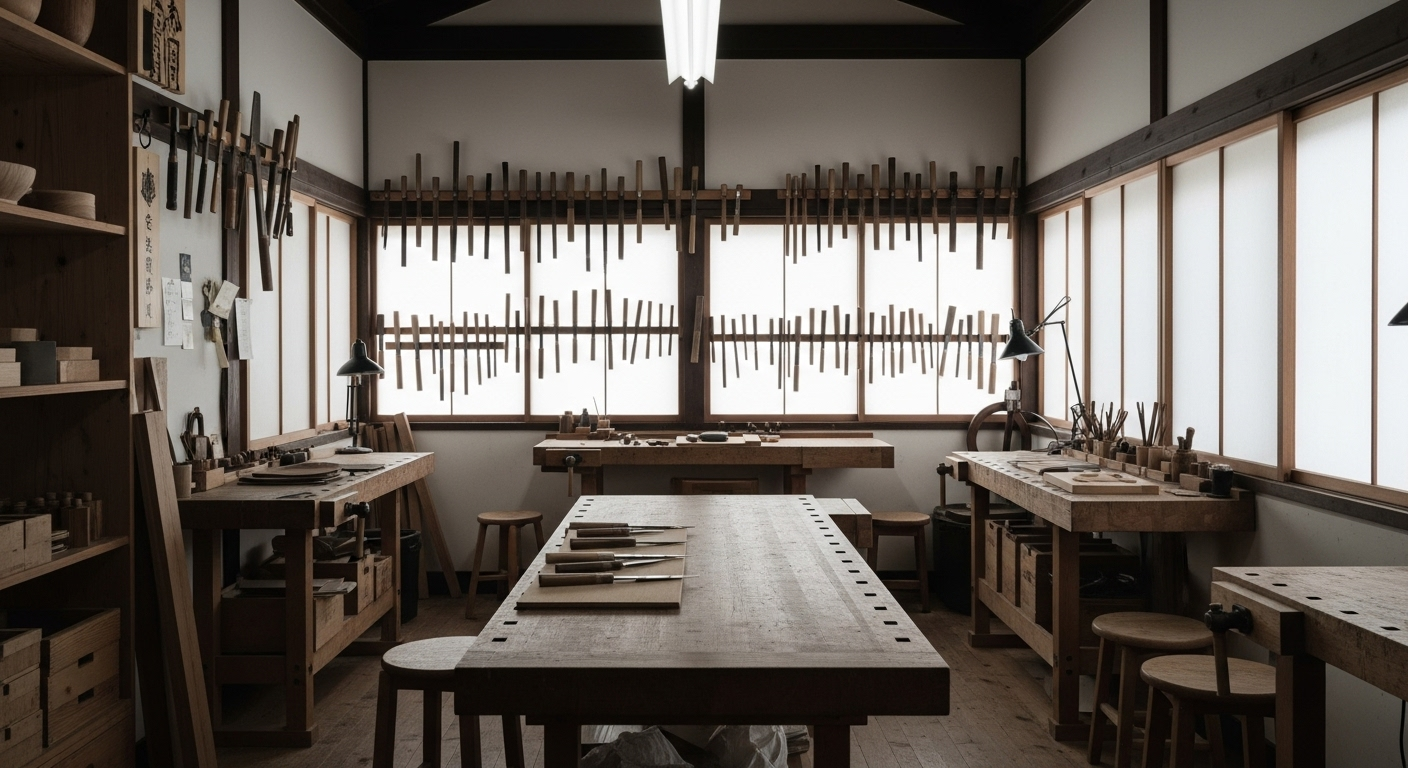
Win-Win for All — Connecting People, Craft, and Community
-
At KIREAJI, our mission is simple yet profound: to create harmony that benefits everyone — customers who cherish their tools, artisans who dedicate their lives to mastery, and the vibrant community of Sakai City.
-
Every knife we deliver is a piece of living history, forged through centuries of tradition and unparalleled craftsmanship. More than a tool, it is designed to bring joy, connection, and meaning to your cooking.
For Our Customers
-
 Kenshiro Azuma (Tsukiji OMASAKSE Head Chef & Owner)
Kenshiro Azuma (Tsukiji OMASAKSE Head Chef & Owner)We offer more than just knives — we offer lifelong companions in your kitchen.
Each blade carries the rich soul of Sakai craftsmanship, helping you cook with confidence and connection.
With our comprehensive maintenance and repair services, your knife — and your bond with KIREAJI — will last for decades. -
For Our Artisans
-

-
Each KIREAJI knife is handcrafted in Sakai by master artisans who have honed their skills with Japanese steel and centuries-old techniques.
We ensure fair compensation and respect for their artistry, so their knowledge and passion can be passed to the next generation.
By valuing their hands and their heritage, we help safeguard the future of Japanese knife-making.
For Our Community
-

-
KIREAJI is committed to revitalizing Sakai City and preserving its cultural heritage.
Through sustainable practices and responsible growth, we aim to create value that extends beyond the kitchen.
Our goal is a true circle of benefit — where customers, artisans, and the community all share in the joy of collective success.
A Shared Journey
-

-
When you choose KIREAJI, you are not just buying a knife.
You are joining a community that honors tradition, uplifts artisans, and keeps a centuries-old craft alive.
Together, we can build a future where the spirit of Sakai continues to inspire kitchens around the world.
The KIREAJI Circle: A Win-Win-Win Built on Craftsmanship
-

KIREAJI creates a shared circle of value where customers gain a lifelong companion, artisans receive fair and direct support, and communities thrive as their cultural heritage is revitalized.
It is a system where everyone wins—and tradition lives on. -

Walking Through the Town of Blades: A Visit to Denshokan in Sakai
The Sakai Denshōkan is a gateway into the city’s knife-making tradition. Upstairs, the Sakai Hamono Museum CUT reveals the history, techniques, and craftsmanship behind Sakai’s world-famous blades. Downstairs, visitors can view and purchase knives firsthand. Admission is free, making it an essential stop for anyone interested in Japan’s cutlery heritage.

When “Japanese” Becomes Just a Label
In a global market where words travel faster than meaning, labels like “Japanese,” “Artisan,” and “Handmade” are increasingly used without clear definition.
This article explores how cultural value can quietly erode when names become generic—and what the global matcha boom, Wagyu, and French wine reveal about the fragile line between culture and commodity.

KIREAJI's Greatest Rival: Yesterday’s KIREAJI
-
A reader once asked us: “Who is KIREAJI’s biggest competitor?”
Our answer is simple: “Yesterday’s KIREAJI.” -
We do not measure ourselves against other brands.
Our true goal is to surpass who we were yesterday—creating finer knives, refining our craft, and delivering the spirit of Sakai more deeply with each passing day. -
Better Today, Greater Tomorrow
A KIREAJI knife is more than a tool.
It is a partner for chefs, helping them achieve their best work.
That is why we constantly ask ourselves:
“What step forward can we take beyond yesterday’s KIREAJI?” -
From the choice of steel, to the angle of the blade, the precision of sharpening, and the fit of the handle—even the smallest refinement carries our soul, elevating KIREAJI to greater heights.
-
Continuous Evolution—The Pride of KIREAJI
“Better today than yesterday, better tomorrow than today.”
-
This belief is the heartbeat of KIREAJI.
Refined techniques, carefully chosen materials, and blades perfected by master artisans—all stand as proof of our relentless pursuit of evolution. -
We do not compete against others.
Our only rival is yesterday’s KIREAJI. -
Beyond Yesterday, Toward the Future
Day after day, we strive to surpass ourselves.
This dedication ensures knives that chefs around the world can use with pride. -
KIREAJI will never stop evolving.
And we invite you to walk with us—beyond yesterday, toward the future.

The Soul of Craftsmanship
-
“Thank You” — The Greatest Reward of All
As a craftsman, no matter how much effort and skill I pour into forging a knife, what matters most is the moment it is finally held by the customer. The simple words, “thank you,” spoken by the person who uses it, carry more weight than any measure of time or labor.
-
That single word tells me the knife has not only served its purpose but has entered someone’s life—becoming part of their meals, their memories, and their moments of joy. While I may feel accomplishment when the blade is complete, it is the customer’s satisfaction and gratitude that truly breathe life into my work.
-
“Thank you” is more than gratitude—it is proof of connection. Proof that steel shaped by fire and hammer has traveled beyond my hands to enrich daily life, bring families together, and create smiles at the table.
-
It is this bond—between craftsman and customer, between knife and kitchen—that inspires me to continue shaping steel with care. Every blade is not just an object, but a bridge of trust and joy, carrying forward the spirit of Japanese craftsmanship into homes and communities worldwide.
Our Story
-
Tradition of Sakai, in Your Hands
"Where can I find a truly great knife?"
We started KIREAJI to answer that question. While the number of skilled craftsmen is declining in Japan, many people overseas are seeking authentic blades. With that in mind, we carefully deliver each knife—bridging tradition and kitchens around the world. -





